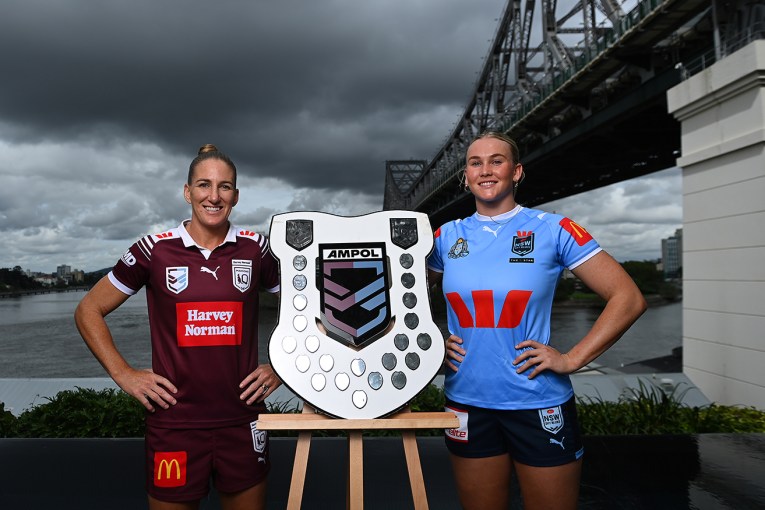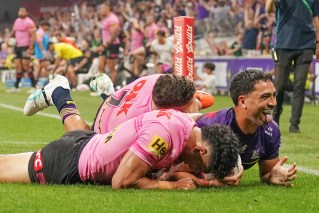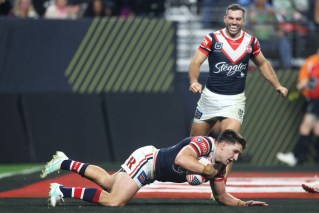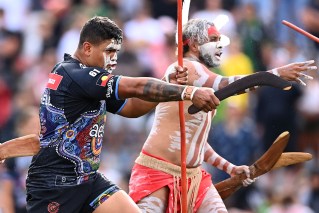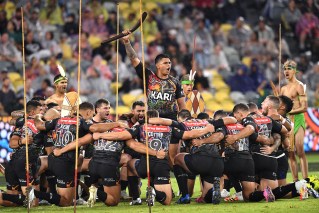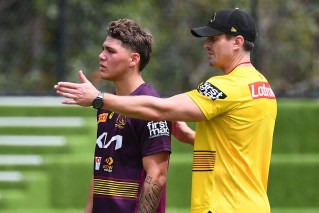NRL targets crude tackles, time wasting
After a season of heightened outrage from players, coaches and commentators over so-called ‘cannonball’ tackles, the NRL has decided to outlaw the controversial tactic.
The change is part of a host of rule changes introduced for the 2014 NRL season aimed at improving player safety and speeding up play.
The league hopes to stop the cannonballs, in which an additional defender hurls himself at the legs of an attacker who is being held up by other tacklers, by making it illegal for the defender rushing in to make first contact below the knees.
This could create some issues as some tacklers aim simply to lock up the legs and bring the attacker to the ground rather than damage him.
Referees will be instructed to call held earlier on standing tackles to deter “unnecessary third-man tackles” which may prevent any issues from arising.
Exponents of the crusher tackle, where defenders drive the chin of the ball-carrier into their chest, will also face severe punishments from this season, with the Match Review Committee to charge the offences at the “higher end of the scale”.
2014 will also hopefully bring an end to lengthy conferences during play between players and referees with captains allowed to speak to the officials only during stoppages or as the teams leave the field for half-time.
Stoppages include tries, injuries or while the referee is issuing a caution but run-of-the-mill penalties and scrums do not count.
In an attempt to heighten in-game drama and prevent intentional time wasting, the clock will be stopped between goals and the restart in the last five minutes.
Goal-kickers will also have to keep in mind a new 80-second timer on their conversion attempts. 80 seconds after a try has been scored, referees will stop the clock to prevent any stalling tactics from the kicker.
The usual fines will apply to clubs if shots on goal take longer than one minute and 40 seconds.
Aiming to further discourage teams intentionally kicking the ball dead to slow play, a 20-metre restart will now be accompanied by a zero tackle with quick taps from penalties more readily allowed in the run of play.
The only times taps will not be permitted from a penalty are defensive 10-metre infringements, when the infringement happens within 10 metres of the opposition’s try-line or when a caution is being issued by the referee.
Fewer scrums appear to be on the agenda for the league, with a tap to take place after a 40/20 and a handover to occur when the ball is kicked out on the full at any point in the tackle count.
“These changes will enhance entertainment for fans and increase safety for players,” the NRL’s head of football Todd Greenberg said in a statement.
“It has involved an extensive review process that started with members and fans through the NRL Nation and has involved all NRL clubs and coaches and the game’s Competition Committee.”
The Competition Committee comprises a number of past and present players, coaches and officials.
The rule changes apply to State of Origin and City-Country games as well as the National Youth Competition, where the captain’s challenge will continue to be trialled.
